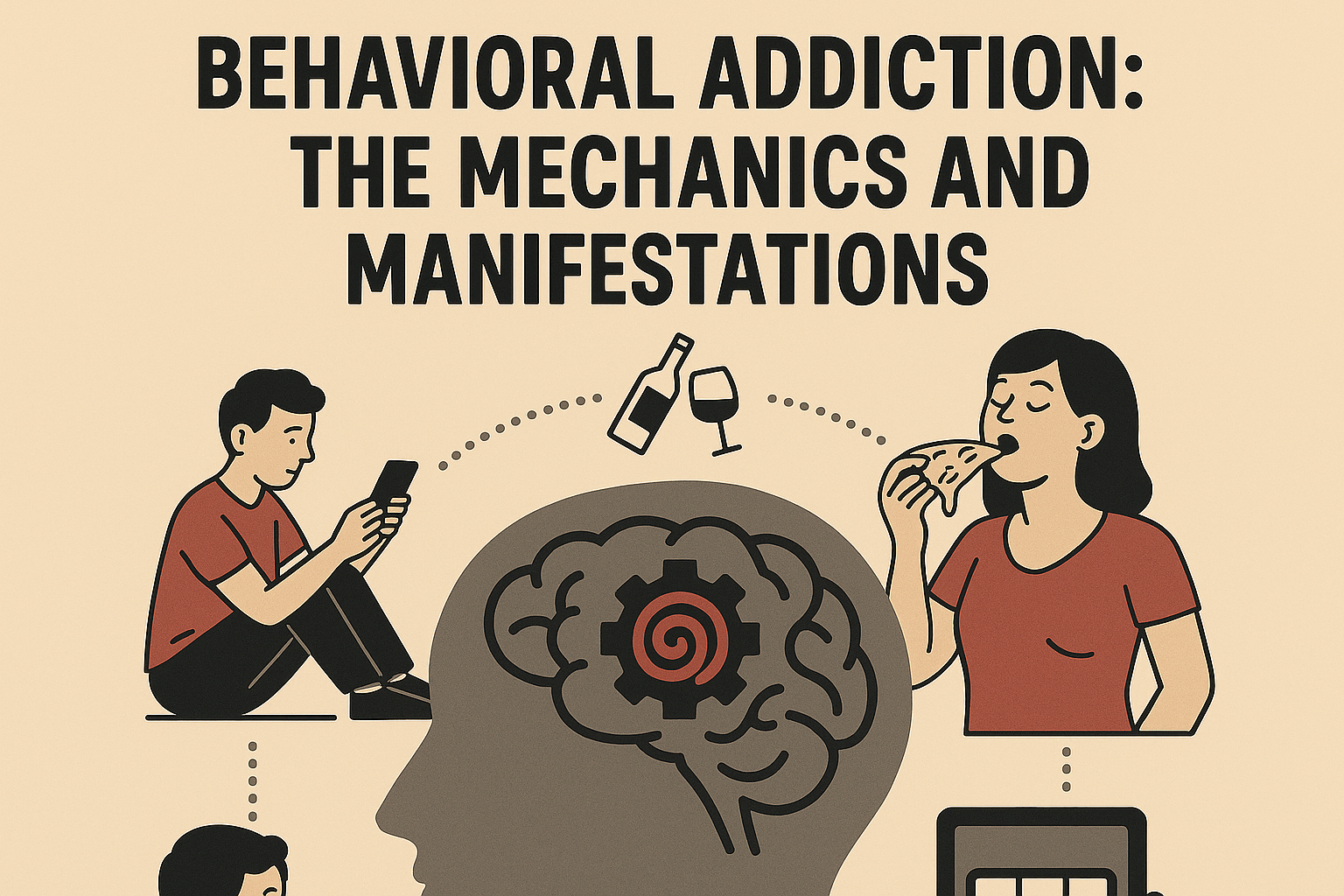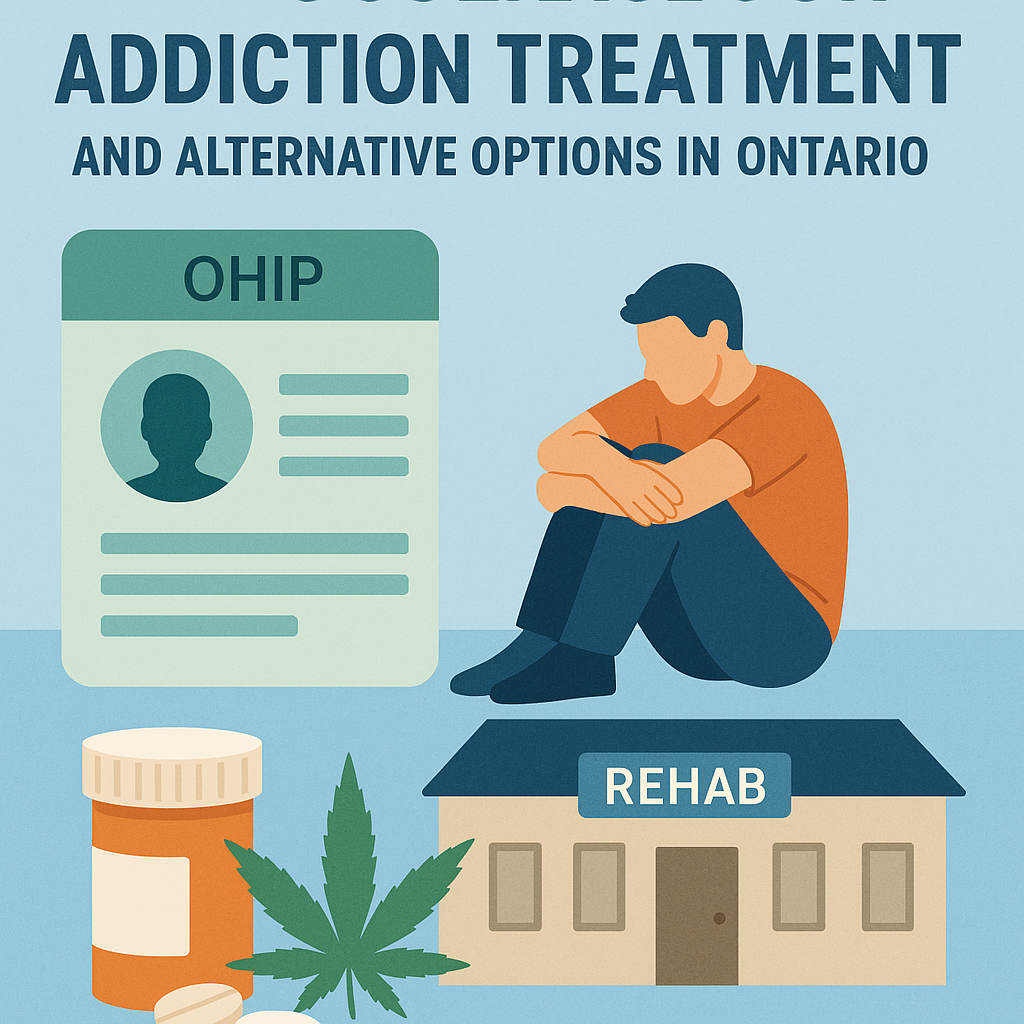
Research illustrates a link between addiction and mental health. When determining why a person turns to substance abuse, you must consider they may struggle with an underlying mental health issue.
Addictions provide a coping mechanism, and often, the only way to determine whether there is an underlying mental health issue is to tackle the addiction first at an addiction recovery centre.
Why tackle the addiction first?
It is when we deal with an addiction that an underlying mental health condition is exposed. When a person uses a substance, their neuroreceptors are altered. When this occurs, their behaviour changes.
For example, some substances generate an increase in dopamine. Dopamine is responsible for pleasure and drives people to addictive behaviours. In a person with an underlying issue, such as depression, bipolar disorder, schizophrenia, or ADHD, their brain experiences a dopamine dysfunction, and they may seek substances that elicit a feel-good response to normalize their emotions.
Addiction takes hold when their body adjusts through homeostasis, requiring them to consume higher amounts of the same substance to receive the same sensation. It is at this point that things become challenging.
For this person, taking the substance promotes feelings of normalcy. Another person viewing them may see an individual struggling with an addiction, but not the underlying mental health issue.
While one may think they are treating the underlying problem, they are not, as these substances are not regulated and frequently cause more physical issues than controlled medications.
With controlled medications, the body rarely (except in a relapse) requires more of it to maintain homeostasis. Furthermore, the patient is under medical care, where a professional monitors their progress. Also, therapy at rehabilitation centres teaches them healthy coping mechanisms.
The Relationship Between Addiction and Mental Health
Mental health issues can catalyze addiction as the individual seeks to manage psychological discomfort. While giving the individual temporary symptom relief, self-medication generates a cycle of worsening mental health and increases addictive behaviour.
For example:
- Someone experiencing anxiety may consume alcohol as a sedative to escape constant worrying and to elicit a state of calmness.
- A depressed person may use cocaine for its temporary euphoric effects.
- Untreated ADHD may cause someone to use prescription drugs (stimulants) to improve their productivity and focus.
After a while, these individuals find themselves unable to function without the substance, thereby increasing their dependency.
As well, prolonged substance abuse can generate or exasperate mental health issues. Long-term usage affects brain chemistry and assists in the development of conditions like psychosis, depression, and anxiety. Furthermore, the addiction consequences such as legal problems, financial issues, and poor relationships, can impact the person’s mental health.
Commons Issues That Co-Exist
Also referred to as concurrent disorder or dual diagnosis, this diagnosis indicates the individual is experiencing a mental health and substance use disorder. The label “concurrent” implies that both disorders co-occur and influence the person’s symptom severity. For those experiencing a dual diagnosis, integrated addiction treatments work best.
Depression
Depression increases the chances of addictive behaviour as the person may want to numb emotional pain. Substance abuse can equally worsen symptoms due to chemical imbalances from alcohol or drugs.
Anxiety
Those experiencing anxiety turn to substances to alleviate symptoms. However, doing so creates a dependency on them. Substance abuse alters brain function, causes dependence, and increases stress. Prolonged exposure increases symptoms and may cause the manifestation of an anxiety disorder.
PTSD
PTSD (post-traumatic stress disorder) co-exists with addictions mainly because it relates to trauma. The disorder develops after the person experiences emotional trauma. Substance abuse often provides a way of coping. However, it can quickly generate dependence on the substance and impede healing.
Schizophrenia
Those with schizophrenia are vulnerable to substance abuse. People with schizophrenia can use substances to deal with overwhelming symptoms, causing a risk for addiction. Addictions then exacerbate the symptoms and can limit the effectiveness of treatment.
Bipolar Disorder
Also called manic depression, bipolar disorder causes extreme mood swings from lows (depressive symptoms) to highs (mania/hypomania). Those experiencing bipolar disorder self-medicate, thus increasing their chances for addiction and worsening symptom severity.
Navigating Towards Effective Treatment Options
Navigating to an effective recovery is challenging for someone facing mental health issues and addiction. Addressing a single problem without acknowledging the potential for the other to be present generates a perpetual cycle between the two issues.
Therefore, seeking treatment at a recovery centre that addresses the link between addiction and mental health and addictions is essential in recovery. Examples of effective programs may include the following:
- Support groups, psychotherapy, and behavioural therapies facilitate recovery by allowing people to connect with a trained psychiatrist, at rehabilitation centres or others in similar situations. Other patients provide understanding, empathy, and community, which permits people to feel less isolated when moving toward recovery. Psychotherapy allows people to untangle their emotions or thoughts.
- Experiential therapy incorporates a beautiful environment with calming techniques like yoga, tai-chi, art therapy, and music. This therapy increases self-awareness, improves focus/attention, and generates self-awareness.
- Neurotherapy incorporates the latest advances in neuroscience and what is known about brain function. It supports healing by leveraging methods that boost the brain’s natural ability to create new neural pathways.
Addiction Recovery Centres Provide Hope
Understanding the relationship between mental health and addictions is the first step in recovery. Integrated treatments from an addiction recovery centre generate collaborative efforts from addiction specialists, mental health practitioners, and medical staff. These treatments effectively address co-existing disorders.
While the connection is multifaceted and interwoven, understanding the co-existing relationship is vital for those seeking answers on how mental health disorders contribute to addiction.
By recognizing they can co-exist and emphasizing integrated treatments, patients can experience a better outcome. Addiction recovery centres also provide loved ones with essential support options.
However, only a professional can diagnose adequately, establish a treatment plan, and generate support. If you or a loved one is experiencing addiction and a suspected mental health issue, contact the Metamorphosis Centre for Change at 1-855-888-0212 or contact us here and fill out our online form.





